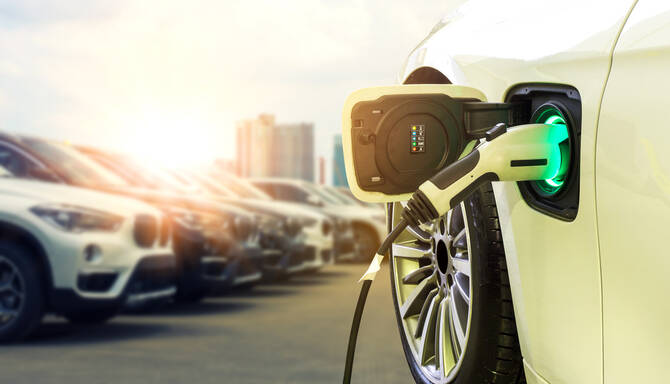In recent years, Brazil has emerged as a surprising leader in Latin America’s electric vehicle (EV) revolution. According to Bloomberg Green, the country is not only embracing electric mobility but also setting ambitious goals for renewable energy integration. With a population exceeding 213 million and a reputation for innovation in sustainable energy—thanks to its extensive use of biofuels—Brazil’s pivot to electric vehicles is both timely and transformative. In this article, we’ll explore why Brazil is at the forefront of the EV movement in Latin America, examine the key factors driving this change, and provide insights into how you can become part of this exciting transition.
The Rise of Electric Vehicles in Brazil
Government Initiatives and Policies
Brazil’s government has been instrumental in fostering the growth of the electric vehicle market. In 2022, the Brazilian Ministry of Mines and Energy announced a comprehensive plan aiming to have EVs make up 20% of all vehicles by 2030. This ambitious target is supported by incentives such as reduced import taxes on electric and hybrid vehicles, making them more affordable for the average consumer. The government is also investing heavily in charging infrastructure, with plans to install 30,000 charging stations nationwide by 2025, according to Reuters Mobility.
Economic and Environmental Factors
Brazil’s focus on electric vehicles is not solely about innovation; it’s also a strategic economic move. The country is rich in natural resources essential for EV batteries, such as lithium and nickel. By investing in local battery production, Brazil is poised to become a key player in the global EV supply chain. Environmentally, the shift to electric mobility aligns with Brazil’s commitment to reducing carbon emissions, as outlined in the Paris Agreement. The International Energy Agency (IEA) reports that transitioning to EVs could reduce the country’s transportation emissions by 30% by 2030.
Local and International Collaborations
Brazil’s EV market is benefiting from both local innovation and international partnerships. Companies like BYD and Volkswagen are investing heavily in the region, with plans to establish manufacturing plants and R&D centers. Local startups are also entering the scene, offering innovative solutions tailored to Brazil’s unique landscape. For instance, Brazilian company Tembici has launched electric bike-sharing programs in major cities, further promoting sustainable urban mobility.
The Role of Technology and Infrastructure
Advancements in Battery Technology
Battery technology is a critical component of Brazil’s EV success story. Advances in lithium-ion technology have led to more efficient, affordable, and durable batteries. According to PV Magazine, Brazilian researchers are working on next-generation battery solutions that promise to extend the lifespan of EVs and reduce costs, making them accessible to a wider audience.
Charging Infrastructure Development
A robust charging network is essential for the widespread adoption of electric vehicles. Brazil is making significant strides in this area, with partnerships between private enterprises and local governments to expand charging infrastructure rapidly. Major highways, such as the BR-101, are being equipped with fast-charging stations, enabling long-distance travel for EV users.
Smart Mobility Solutions
Brazil is not just adopting electric vehicles; it’s embracing smart mobility solutions that integrate seamlessly with urban planning. TechCrunch highlights how Brazilian cities are deploying smart grid technologies and IoT solutions to optimize energy use and improve traffic management. These advancements make electric mobility more efficient and user-friendly, encouraging higher adoption rates.
How to Get Involved in Brazil’s EV Revolution
Purchasing an Electric Vehicle
If you’re considering buying an electric vehicle in Brazil, there are several options to explore. Brands like Nissan and Hyundai offer popular models such as the Nissan Leaf and Hyundai Kona Electric. When buying an EV, consider factors like range, charging time, and local availability of service centers.
Charging Your EV
Charging your electric vehicle in Brazil is becoming increasingly convenient, thanks to the expanding infrastructure. Apps like PlugShare and ChargeMap provide real-time information on available charging stations. Opt for home charging solutions if you have access to a garage, as they provide the most convenience and cost-efficiency.
Comparing Models and Features
When choosing an electric vehicle, it’s crucial to compare different models and features. Look for vehicles with high safety ratings, advanced infotainment systems, and state-of-the-art driver assistance technologies. Websites like InsideEVs offer detailed comparisons and reviews that can help you make an informed decision.
Conclusion: The Future of Electric Mobility in Brazil
Brazil’s leadership in Latin America’s EV revolution is a testament to its commitment to innovation, sustainability, and economic growth. By investing in technology, infrastructure, and policy development, the country is not just adapting to the future of mobility—it’s helping to shape it. As Brazil continues to expand its electric vehicle market, the opportunities for consumers and businesses alike are vast and exciting.
Are you ready to join Brazil in driving towards a more sustainable future? Whether you’re considering purchasing your first electric vehicle or simply interested in the latest trends, Brazil’s journey offers valuable insights and inspiration. Embrace the change and be part of Latin America’s green revolution. What are your thoughts on Brazil’s electric vehicle push? Leave a comment below and join the conversation.
As we look forward, it’s clear that Brazil is not only leading the charge in Latin America’s EV revolution but is also setting a precedent for emerging markets worldwide. With continued innovation and collaboration, the future of electric mobility in Brazil—and beyond—is brighter than ever.

